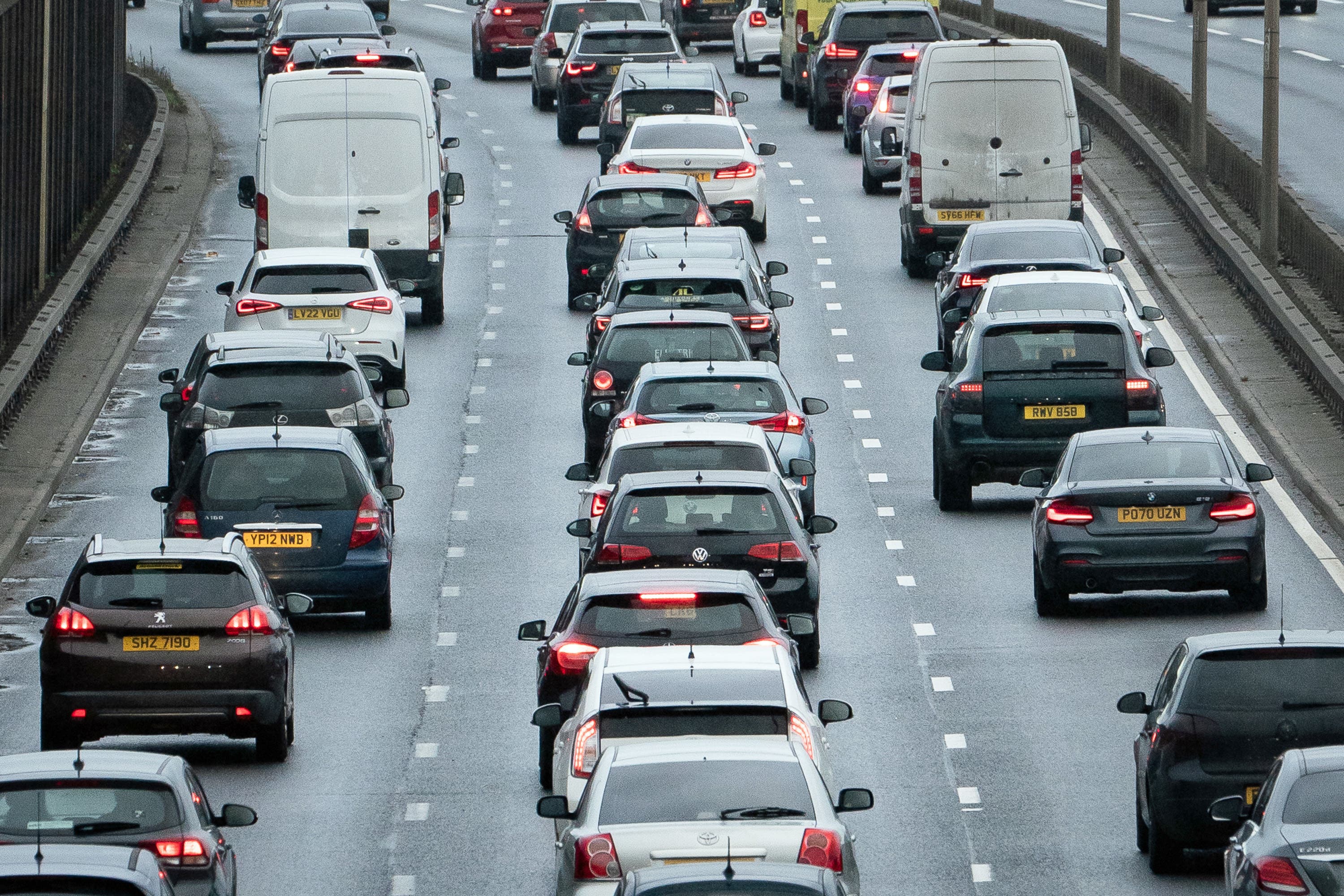Restricting private vehicles in cities reduces disease and injuries, study says
Researchers said the review brings together global evidence to help understand how effective LEZs and CCZs are in bringing about benefits to health.

Your support helps us to tell the story
From reproductive rights to climate change to Big Tech, The Independent is on the ground when the story is developing. Whether it's investigating the financials of Elon Musk's pro-Trump PAC or producing our latest documentary, 'The A Word', which shines a light on the American women fighting for reproductive rights, we know how important it is to parse out the facts from the messaging.
At such a critical moment in US history, we need reporters on the ground. Your donation allows us to keep sending journalists to speak to both sides of the story.
The Independent is trusted by Americans across the entire political spectrum. And unlike many other quality news outlets, we choose not to lock Americans out of our reporting and analysis with paywalls. We believe quality journalism should be available to everyone, paid for by those who can afford it.
Your support makes all the difference.Lowering air pollution from traffic in cities through low emission zones (LEZs) and congestion charging zones (CCZs) has a measurable benefit to public health, scientists have said.
In multiple cities across the UK, Europe and Asia, there has been a decline in cardiovascular disease and road traffic injuries where restrictions have been introduced.
Through reviewing the available evidence on the health impacts of these measures, researchers from Imperial College London found LEZs reduce cardiovascular-related hospital admissions by lowering air pollution while CCZs, such as in the UK’s capital, cut the number of road injuries by having fewer vehicles.
Publishing their work in the Lancet Public Health, the authors looked at studies relating to Tokyo, Milan, Stockholm and multiple cities in Germany as well as London, though they did not include any health-related impacts of the ultra-low emission scheme (Ulez).
We found evidence of health benefits within a relatively short time of implementation, particularly in relation to cardiovascular disease and road traffic injuries
One out of the seven studies relating to London found there to be a minor increase in bicycle and motorcycle injuries and deaths, but the authors said this could be because more people are travelling that way.
PhD candidate Rosemary Chamberlain of Imperial College London and first author of the study said: “Our review brings together the global evidence to help understand how effective LEZs and CCZs are in bringing about benefits to public health.
“We found evidence of health benefits within a relatively short time of implementation, particularly in relation to cardiovascular disease and road traffic injuries.”
Worldwide there are 1.3 million deaths a year because of road traffic, the researchers said.
As of 2022, there were 320 LEZs across Europe and the schemes are being increasingly used in the UK.
Beyond London’s CCZ and Ulez, six other cities have low or clean emission zones – Birmingham, Bristol, Glasgow, Bath, Bradford and Portsmouth.
Last February Oxford introduced a zero-emission zone in the city centre where only fully electric cars, vans and motorcycles can be used without paying a fee.
Cambridge is considering introducing a congestion charge but has faced strong opposition from local residents, the Cambridge Independent has reported.
The original plan proposed charging £5 for cars, £10 for vans and £50 for HGVs and coaches from 7am-7pm, though alternative ideas have been proposed, such as charging only at peak times and exemptions for staff and patients at NHS hospitals.
Clean air zones, synonymous with LEZs, are also set to be introduced in Aberdeen, Dundee, Edinburgh, Sheffield and Newcastle, with Manchester considering a new proposal after a recent rejection.
Councils across the country are bringing in these measures mainly in an attempt to reduce air pollution from traffic, which as well as damaging health is a significant contributor to greenhouse gases.
Continued monitoring and evaluation remain crucial, but this review and other evidence supports efforts to reduce the use of private motor vehicles, particularly older more polluting vehicles, in cities.
Public Health England, the precursor to the UK Health Security Agency, estimated that up to 43,000 people a year are dying in the UK alone because of air pollution and that it could cost the country as much as £18.6 billion by 2035 unless more action is taken.
UK Government provisional figures, released in March, show that in 2022, transport accounted for 34.0% of all territorial carbon dioxide emissions, with the majority of that coming from road traffic.
Dr Anthony Laverty, of Imperial College London, said: “As with any interventions based on financial penalties to incentivise change, careful consideration of how and where they are implemented is key.
“One argument against LEZs in cities is that they can hit people on lower incomes the hardest.
“But the reality is that poor air quality and associated ill-health often most impact the poorest in our cities. We need to address this in order to improve air quality and public health.
“Continued monitoring and evaluation remain crucial, but this review and other evidence supports efforts to reduce the use of private motor vehicles, particularly older more polluting vehicles, in cities.”